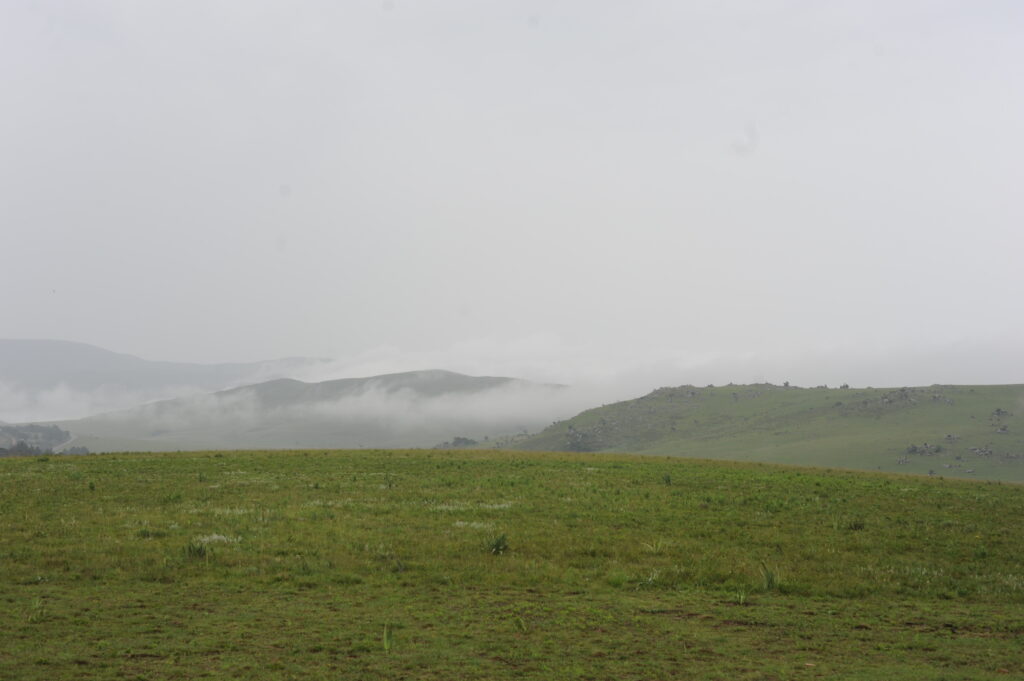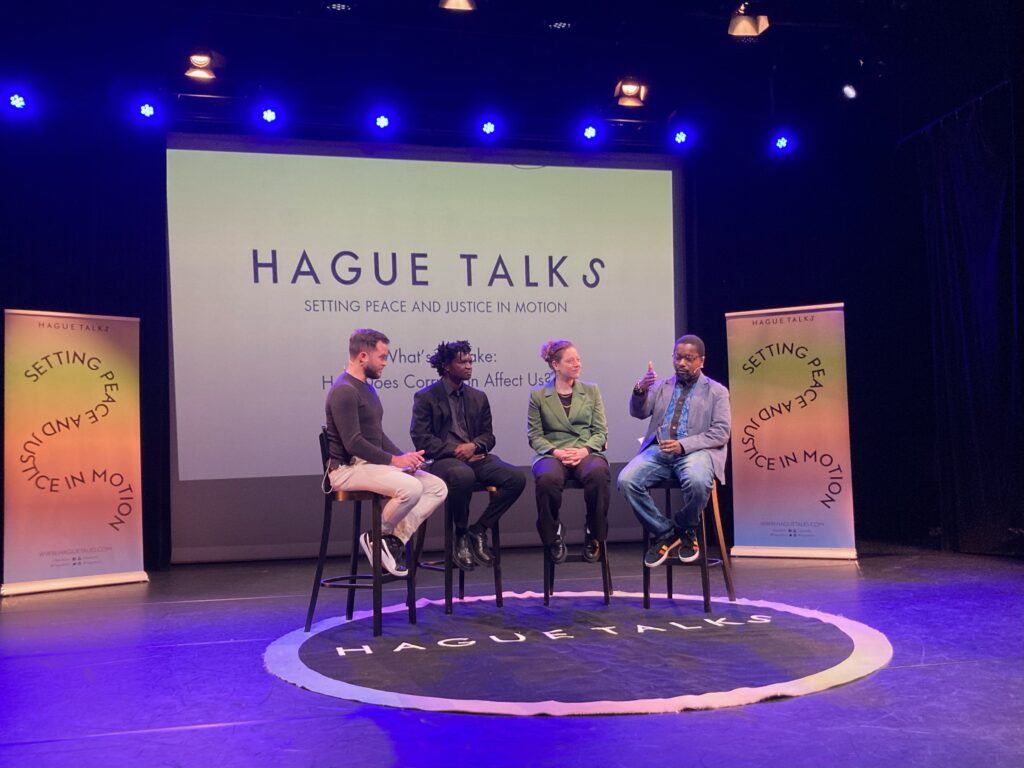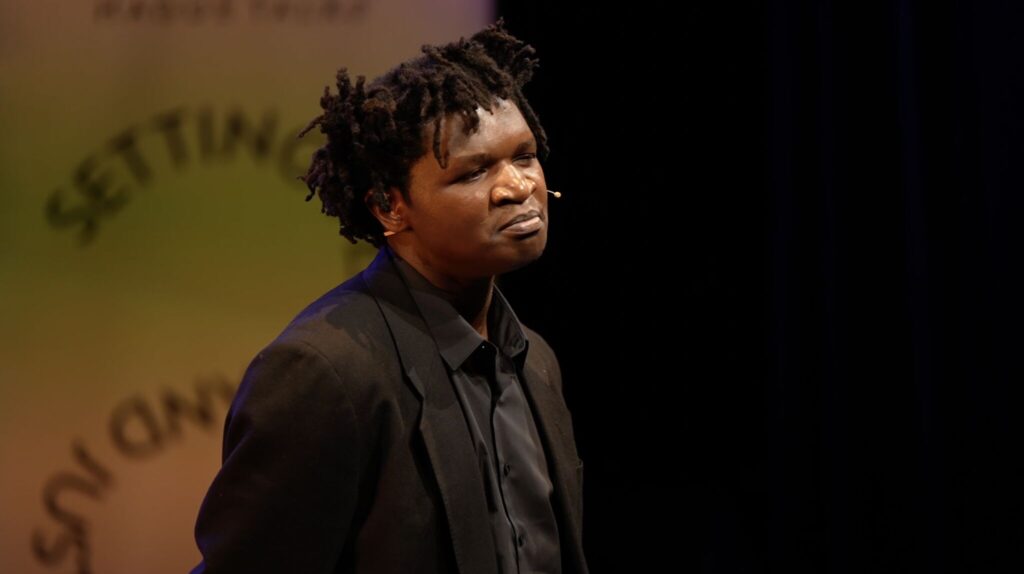In October 2024, we had the privilege of participating in Hague Talks, an important event discussing the effects of corruption and the proposal for an International Anti-Corruption Court (IACC). The event, held at Het Koorenhuis in The Hague, brought together leaders and activists, including journalist Cebelihle Mbuyisa who focuses on the consequences of corruption in his work. At that time, Cebelihle was in The Netherlands as part of the Shelter City Project, a sanctuary that offers human rights defenders a temporary safe haven to reflect and recharge.
In this interview, we caught up with Cebelihle to learn how his experience in The Netherlands has influenced his work and his plans for 2025.

Why did you participate in Hague Talks about corruption and the IACC Campaign?
For over five years, I’ve focused on journalism, primarily addressing the consequences of corruption in Southern Africa. My recent reporting on mining within an Eswatini nature reserve—led by a Chinese-owned operation—showcased both environmental devastation and human rights abuses. In countries like Eswatini, corruption and dictatorship mean that laws are frequently ignored, especially when the king, who controls all branches of government, gives approval.
I wanted to use the Hague Talks platform to ask: What avenues do citizens have in such a system to seek justice? This question is often raised in my work, as local activism and opposition are often met with inaction from those in power.
“Corruption is a disease, a malignant and highly infectious disease… in a constant state of mutation in response to the remedies prescribed against it.” – Dr. Andrew Bwire Buluma at Hague Talks What’s at Stake: How Does Corruption Affect Us?

What did your time in The Netherlands and the Shelter City project bring you?
The experience introduced me to a network of global human rights advocates, learning from their diverse challenges and triumphs. It was eye-opening to see how democracy and human rights institutions are not only central to societal development but also visible everywhere—whether in everyday spaces or through museums like the Anne Frank House, preserving crucial memories of the past.
The democratic strength I observed in The Netherlands—especially in the fight for queer rights—was inspiring. The museums in the country, dedicated to preserving history and ensuring the stories of injustice are never forgotten, reinforced the importance of remembrance in any fight for justice.
My time in Haarlem was enriching. I learned from a society proud of its history, as I explored places like the Frans Hals Museum and marveled at how the Dutch balance preserving the past with embracing innovation.
How will 2025 look for you?
2025 is a year of growth for me. I’m determined to continue shedding light on how corruption impacts ordinary people, but I’m also pushing my work into new realms. I’m enrolling in a film school in Cape Town to explore video storytelling. Documentaries are next on my list, and I’m excited to collaborate with a team to produce impactful content that resonates globally.
“I go to places where many journalists do not go… and I sit with people who are victims of corruption and ask them to tell me their stories… . Corruption isn’t just about money. It’s about people’s lives – it’s about communities that are forgotten and voices that are silenced.” – Cebelihle Mbuyisa at Hague Talks What’s at Stake: How Does Corruption Affect Us?

How can people follow you and your work?
You can explore my articles on Muck Rack. For real-time updates and insights, follow me on LinkedIn. If you’re interested in partnering or supporting my work, feel free to reach out!